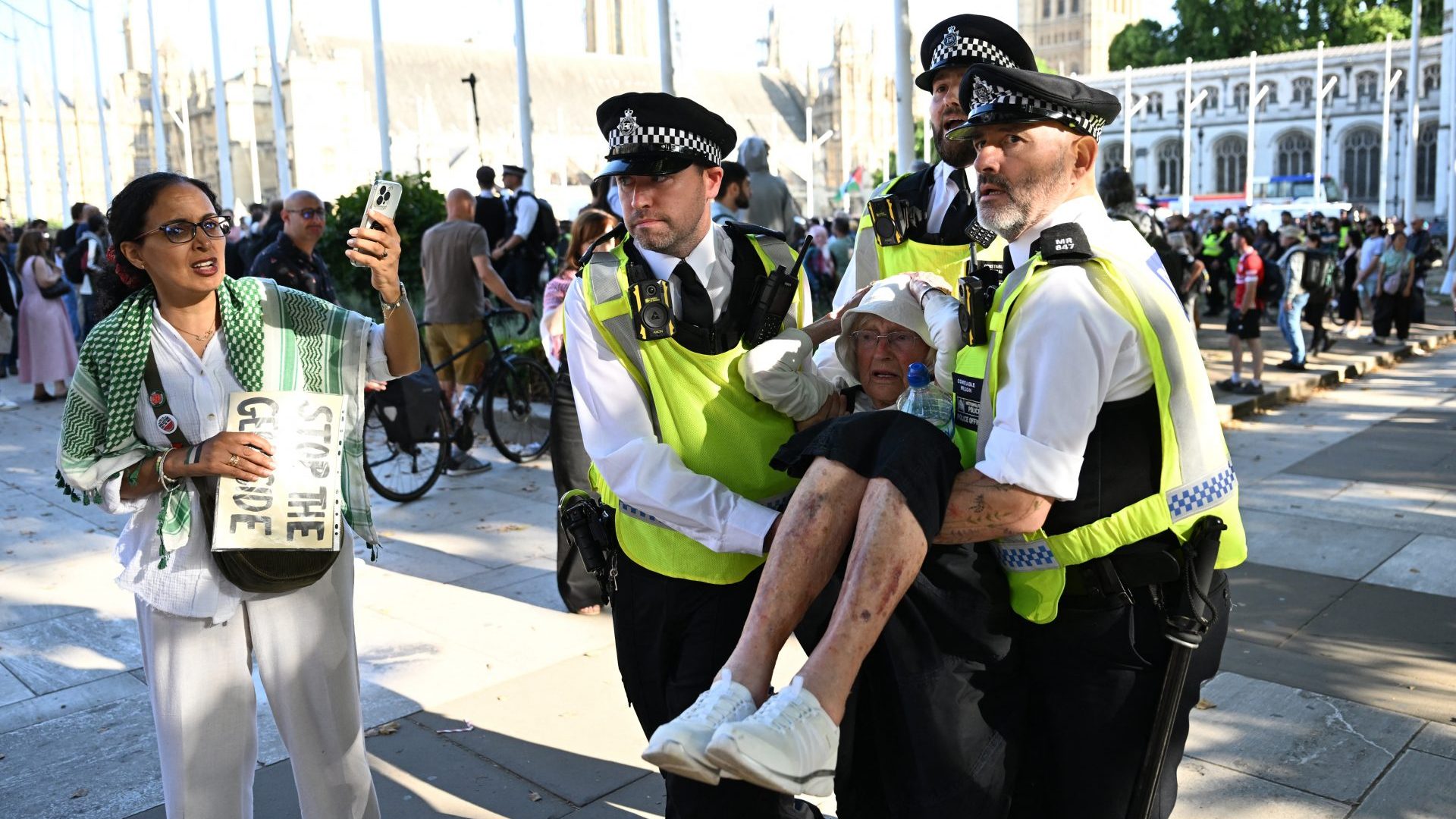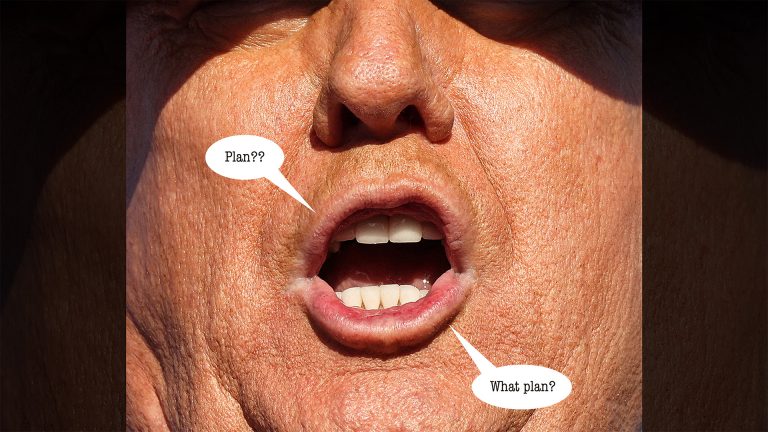On Saturday, hundreds of people marched to Parliament Square and wrote a two-sentence phrase onto placards. For this simple act, 522 of them were arrested under the Terrorism Act – the most arrests the Metropolitan Police has made in a decade – for an offence that carries a maximum sentence of 14 years in jail.
More than half of those arrested are over 60. Fifteen of them were over 80. Photos of peaceful protestors being arrested in large numbers for a slogan on a piece of cardboard were splashed on the front pages of multiple newspapers. Something has clearly gone very, very wrong here.
At the core of the issue is the choice of the government to proscribe a group called Palestine Action as a terrorist organisation. Palestine Action engaged in actions that went significantly beyond peaceful protest.
Its members were accused of causing major damage to RAF Brize Norton, a military base essential to the UK’s operations in the Middle East. It had previously been involved in committing criminal damage at a facility involved in the maintenance of the UK’s submarine fleet, in an action that allegedly involved throwing fireworks at staff. During a Palestine Action invasion of a different defence facility last year, two police officers were assaulted with a sledgehammer.
In short, even just based on what is in the public domain, Palestine Action’s members went well beyond the conventional boundaries of peaceful protest. Polling consistently shows the public support tough criminal action against people who engage in such actions – but the government went much further than this, specifically designating the group as a terrorist one, meaning it is engaged in political violence.
Yvette Cooper and the Home Office have both insisted there is more evidence that cannot be made available to the public to support this designation, but they have declined to try to make any of it available, relying instead on the public to take it on trust. Instead, this has only served to further inflame tensions among those already furious over genocide in Gaza and what they see as the UK’s complicity in it.
Designating a group as involved in terrorism makes it easier to arrest and jail its members, and to cut it off from the global financial system, but it also makes it a criminal offence to declare support for it.
This was a deliberate decision when the Terrorism Act was passed in 2000, intended to handle a situation in which someone could declare and encourage support for the IRA, Al Qaeda (or later groups like ISIS) without being a member themselves – allowing them to serve as a recruiter or promoter while the law was unable to act.
It is these provisions that are leading to the mass arrests. The slogan being written on the signs is “I oppose genocide. I support Palestine Action”.
Some protestors are trying to suggest that the government is criminalising protesting against Israel’s actions in Gaza. This is largely untrue: it is still entirely legal to carry a sign saying “I oppose genocide”, “I oppose Israel’s genocide in Gaza”, or any similar message – though there have been isolated incidents of individual police officers incorrectly telling some protestors otherwise.
It is the second half of the slogan that is causing the trouble. “I oppose the proscription of Palestine Action” is allowed under UK law, but “I support Palestine Action” is not. It is worth noting that this did not come as a surprise to the 522 people arrested on Saturday – they knew the slogan was illegal when they wrote it. That, of course, is why they wrote it.
The people who carried those placards went out to get arrested, and they got what they wanted. None were taken by surprise, and they weren’t tricked. Some campaigning on this front is disingenuous: if you deliberately break the law because you think the law is an ass, getting arrested is the point of the exercise. Everyone involved knew what they were getting into.
Palestine Action is a terrible group to have at the forefront of the Gaza cause in the UK. They have repeatedly engaged in violence and disrupted the UK’s ability to defend itself at a time when there is an active war in Europe. The more the public learns about that specific group, the less they will like.
Similarly, claims that pro-Palestine protestors are being treated more harshly than far-right rioters last year are wildly overblown. Almost everyone arrested on Saturday will walk away with a fine at worst.
Only repeat offenders breaking the terms of their bail will face tougher penalties. Rioters last year were arrested in greater numbers and rightly faced substantial jail sentences – because they either directly engaged in violence, or they encouraged it.
Suggested Reading


Gary Lineker: ‘I’m not antisemitic. I’m anti the killing of children’
However, there surely must come a point when the government – even the famously insular and stubborn Home Office – has to step back and look at how its decision to proscribe Palestine Action is working in practice.
Has it stopped the group attracting attention and sympathy? Clearly not. Is it making it easier for the police to manage protests and maintain public order? It is doing the opposite.
Is it good for public confidence in the criminal justice process? No – and it is fuelling antisemitic conspiracy theories. To talk about this issue online is to be deluged by replies saying the step has been done because the government is having its strings pulled by Israel, or the Jewish lobby, or some other sinister group.
Every consequence of the government’s decision here is bad, even if examined only through the lens of its policy goals. It is also clearly detrimental to free speech, but the government knew that when it made the decision in the first place, and evidently wasn’t troubled on that front then, so is unlikely to care much about it now.
Defending an indefensible policy by claiming to have secret reasons that it’s necessary looks like political desperation. The public trust simply isn’t there for either Yvette Cooper or the Home Office to say “trust me”.
As a result, it has backed itself into this corner, and there are only two ways out. The first is to publicly offer up its real reasoning and evidence for proscribing Palestine Action, and to trust that those reasons are good enough that they’ll change the narrative.
The other is to accept it got this wrong, and reverse the proscription, or at least issue guidance to police and CPS not to enforce the particular aspect of it around public support of the group.
Until then, it will continue to burn credibility with the public, with protestors, and with the police being left to enforce this mess all at once. That’s quite a coalition it’s managed to build.








